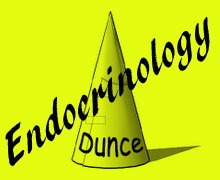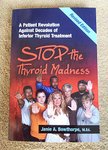Companion Nutrients: The Key to Success on the Iodine Protocol
To succeed on iodine supplementation, it’s recommended to prepare with companion nutrients to help counter the detox that iodine will cause.
The following informative Guest Blog Post was written by thyroid patient Jane. She is a mother and a member of the Weston Price Foundation. Years of battling a very painful disease, and experiencing the indignity and futility of mainstream medicine for managing chronic illness, led her to a path seeking true health, which included her use of iodine. Jane states: The iodine protocol has given me back my energy, cleared brain fog and erased the pain of fibrocystic breast disease. After extensive reading and over a year on the high iodine protocol, I’m personally convinced it is one of the best things you can do to help solve a wide range of major health problems, and ensure good health for many years to come.
*********************
The entire body uses iodine, not just the thyroid. Various tissues and organs are designed to concentrate large amounts which are necessary for their normal structure and function. Conversely, low iodine levels are associated with autoimmune thyroid disease, breast cancer, thyroid cancer, goiter and fibromyalgia, as well as cysts and nodules of the breast, thyroid and ovaries.
Iodine researchers Drs. Abraham, Brownstein and Flechas tested 35,000 people – and 96% are deficient in this nutrient!
So why do so many people state that they cannot take iodine due to a reaction?
The answers may lie with what are termed the “companion nutrients”, which was coined by Lynne Farrow of the Iodine Workshop group. Each of these nutrients are critical to the success of the Iodine Protocol, and thus is essential to the proper working of your body. Those companion nutrients are as follows:
- Selenium (see note below): 200-400 mcg per day
- Magnesium: 400-1200 mg per day
- Vitamin C: 3,000-10,000 mg per day
- Vitamins B2/B3 (ATP CoFactors): 100mg riboflavin and 500 mg no flush niacin, inositol hexanicotinate form, 1-2x per day
- Unrefined Salt (Celtic): 1/2 tsp. or more per day
[Note: the above amounts are recommended dosages given in the writings and lectures of the iodine researchers listed above. They are not to be used as medical advice. For your particular health concern, you should consult an iodine literate practitioner – one who uses high amounts of iodine in their practice regularly and has read the research published at Optimox.com and in Dr. Brownstein’s book “Iodine: Why You Need It, Why You Can’t Live Without It”.]
Note about selenium from Janie Bowthorpe: it can be important to test your levels before getting on selenium. Because of the MTHFR mutation, some people can have high levels, and being on selenium can make that worse with side effects to match, such as hair loss and more.
Here are the reasons why each of the companion nutrients are so necessary:
Selenium
- high amounts of iodine without selenium induces AIT (Auto Immune Thyroiditis) and goiter.
- selenium + iodine reduces goiter and inflammation of the thyroid gland.
- selenium supplementation reduces TgAb that may be elevated by taking iodine.
- TPOAb antibody levels were inversely associated with selenium levels (if you have high selenium, you have low antibodies and vice versa).
- selenium + iodine increases the regulatory immune cells which prevent the development of autoimmune diseases.
- necessary for the body to produce glutathione peroxidase, which detoxes pesticides, mercury, chlorine and bromide.
Analysis of the medical literature is clear: selenium plus iodine is the best combination for thyroid health. When iodine has been shown in studies to be damaging to the thyroid, it appears that concurrent selenium deficiency is the true culprit.
Not only that, if you are iodine deficient, selenium supplements “induce a dramatic fall of the already impaired thyroid function in clinically hypothyroid subjects“. https://www.ncbi.nlm.nih.gov/pubmed/2045471?dopt=AbstractPlus
Therefore, if you are already hypothyroid, taking selenium supplements while iodine deficient will make you MORE HYPOTHYROID.
Please note that Brazil nuts are not a reliable source for selenium. You have no way of knowing if the soil they are grown in is sufficient in this mineral.
Magnesium
- necessary for over 300 enzyme reactions in the body.
- along with 100mg of iodine per day, improves patients self reported fibromyalgia scores.
- along with iodine, improves autoimmune goiter, atrophy and fibrosis.
- essential for the production of ATP, which is used for maintaining body temps and as a source of energy.
The iodine researchers found that what leads to development of autoimmune thyroid disease (Hashimoto’s, Graves) is magnesium deficiency together with low iodine, low antioxidants, and high calcium. Sounds like a description of the standard modern diet, heavy on the dairy and processed foods, doesn’t it?
Vitamin C
- heals the iodine transporter system which may be damaged by toxic halides.
- aids cellular uptake of iodine.
- key antioxidant that supports detox.
The iodine researchers found that some of their patients were excreting large amounts of iodine which was not being absorbed by the body. Since these patients had known iodine-deficiency disorders, the doctors’ theorized that that they couldn’t possibly be iodine sufficient. This was thought to be due either to a “defective cellular iodine transport system”, or due to a body load of large amount of environmental goitrogens such as fluoride and bromide that prevented the iodine from entering the cell. Clinical improvements in their symptoms, and enhanced iodine uptake, was reached with 3 grams (3000 mg) or more of vitamin C in sustained release form.
[Author Note: If sustained release is not available, I split my daily dose and take with breakfast, lunch and dinner. And I always take it with bioflavonoids such as amla, camu or acerola powder.]
Vitamins B2/B3 (ATP CoFactors)
- supports production of adrenal hormones.
- stimulates mitochondria to produce more energy.
- aids proper oxidization of iodine in thyroid for AIT patients.
- clears brain fog, chronic fatigue, pain and other symptoms associated with fibromyalgia.
It is no surprise that the protocol improves fibromyalgia. The “striated muscles contain 33% of the total body iodine”. If the muscles do not contain a high amount of the natural mineral iodine like they are meant to, it would make sense to me why they would not function well. Perhaps iodine deficiency is the key to the mystery of this disorder?
Unrefined Sea Salt
- supports adrenals and reduces oxidative stress.
- kicks bromide out of the body through the urine.
- relieves symptoms of bromide detox.
- helps get iodine into the cells via the NIS (sodium iodide symporter).
Unprocessed salt is a necessary nutrient for many reasons – but on the iodine protocol, it can also be a real life saver! The chloride in salt competes with bromide in the kidneys, so a person who is low in salt will hold on to more body-busting bromide. At 6-10 grams per day, salt can increase the urinary excretion of bromide by up to 10 fold!
Salt Loading Protocol – Optional
From Dr. Shevin, based on the U.S. Military’s salt IV protocol for bromide intoxication. Relieves side effects that can result from bromide detox such as headache, acne, fatigue, etc.
Drink 1/4-1/2 teaspoon unrefined salt dissolved in 1/2 cup warm water, then followed immediately with 12-16 oz pure water.
Repeat in 30-45 minutes if needed. May repeat again until copious urination begins, or until symptoms are relieved.
On a final note, if you are having reactions, try Pulse Dosing.
This means that taking a break from iodine, while continuing to take companion nutrients and salt each day, can allow your body to clear toxins more efficiently.
Recommended by Stephanie Buist ND if having reactions to iodine: “Take iodine for 5 days with 2 days off while continuing to take the companion / supporting nutrients along with one of the other liver supporting products (such as Milk Thistle, Dandelion Root Extract, and Liver Cleansing products like Pure Zen Health TLC, Metagenics, Ultra Clear Plus.”
References and more information
The term “companion nutrients†was coined by Lynne Farrow!
https://www.facebook.com/groups/IodineWorkshop
Clinical results and research of Dr. Guy Abraham, Dr. David Brownstein and Dr. Jorge Flechas
https://www.optimox.com/iodine-research
Iodine and Hashimoto’s Thyroiditis by Mario Renato Iwakura – Part 1 & 2 https://perfecthealthdiet.com/2011/05/iodine-and-hashimotos-thyroiditis-part-i// https://perfecthealthdiet.com/2011/05/iodine-and-hashimotos-thyroiditis-part-2/
Salt Your Way to Health by Dr. David Brownstein
http://www.celticseasaltblog.com/articles/salt-articles/salt-your-way-to-health/
Iodine Yahoo Group
http://groups.yahoo.com/neo/groups/iodine/info
Iodine 4 Health Facebook Group
https://www.facebook.com/groups/iodine4health/
STTM Iodine page, plus more in the Odds and Ends Chapter of the STTM book.
https//stopthethyroidmadness.com/iodine12345
**Have you Liked the STTM Facebook page? It gives you daily inspiration and information!







